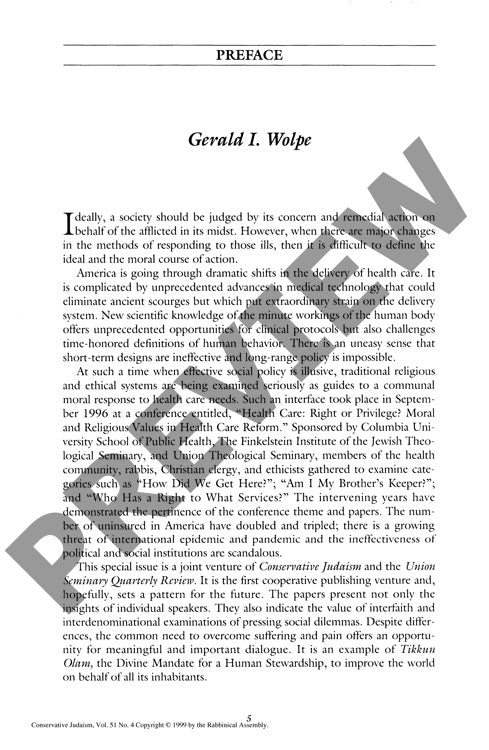Preface
Couldn't load pickup availability
When society grapples with fundamental questions of healthcare access and moral obligation, religious traditions offer vital ethical frameworks to guide policy decisions. A groundbreaking 1996 conference, "Health Care: Right or Privilege? Moral and Religious Values in Health Care Reform," brought together healthcare professionals, rabbis, Christian clergy, and ethicists to address the mounting crisis of healthcare delivery in America. Through collaborative dialogue between Columbia University School of Public Health, The Finkelstein Institute of the Jewish Theological Seminary, and Union Theological Seminary, participants analyzed how traditional moral principles could inform responses to modern healthcare challenges. The findings reveal that religious and ethical systems become especially crucial during periods of healthcare transformation, providing moral anchors as unprecedented technological advances reshape our understanding of human physiology and clinical possibilities. Beyond theoretical insights, the interfaith and interdenominational collaboration demonstrated practical pathways for addressing pressing social healthcare dilemmas, particularly valuable as uninsured populations grow and institutional effectiveness declines. This approach embodies the principle of Tikkun Olam - illuminating how shared responsibility for human welfare can guide healthcare reform even amid rapid scientific and social change.

More Information
-
Physical Description
-
Publication Information
Published 1999
ISBN
-
Publication Credits
Gerald Wolpe

